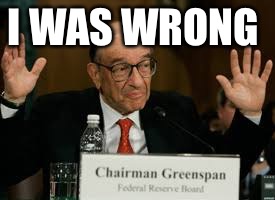Chou Toshio
The problem, I feel, with incentives and taxation as a mechanism, is that they would have to be proportionate to company income for them to have any significant impact, which would mean they could end up being severe or unpredictable, and they would also be difficult to enforce.
Although it is tempting to try and predict the effects of a minimum wage hike, it is important to consider that data is prone to framing biases that could result in erroneous conclusions that serve particular interests. For instance, Alan Greenspan, chairman of the largest compendium of financial data in the entire country, was still unaware of the economic implications of his own policies even as their consequences were unfolding before his eyes in 2007.
The minimum wage isn't the only threat to low-wage workers. If the minimum wage doesn't cause poor people to lose jobs, automation will. Redbox, for instance, replaced Blockbuster as the main distributer of DVD rentals in the country. Target is opening a concept store next year that will replace nearly all of its workers with robots.
This might seem like an argument against minimum wage, but I would argue that the threat of labor competition makes it even more important to protect workers' bargaining capacities by instituting a wage floor. It is, after all, the threat of competition that causes workers to tolerate substandard conditions in the first place. Without a wage floor, forces depressing labor prices will only become stronger in the face of the growing threat of automation, causing intense stress among our most vulnerable populations.


















/cdn0.vox-cdn.com/uploads/chorus_asset/file/4338453/NYDN%20Donald%20Trump.jpg)


